Preeclampsia (PET) is a serious complication affecting 1 in every 10 pregnancies. PET is a pregnancy complication characterised by high blood pressure and damage to other organs. Annually, preeclampsia claims the lives of 50,000 mothers and 500,000 babies, making it one of the world’s deadliest pregnancy complications.
The AI_PREMie Project: Could AI save lives?

AI_PREMie (Artificial Intelligence to Prevent preterm birth due to preeclampsia while protecting Mothers’ lives), is a combination of patented biomarker testing and risk assessment powered by machine learning that not only accurately diagnoses preeclampsia but also predicts the patient’s outcome.
What is preeclampsia?
Even though there is a description of preeclampsia dating back to the time of ancient Egyptians, this medical condition remains difficult to diagnose. Clinicians still rely on high blood pressure and the presence of protein in the urine as possible indicators, an approach that has not changed in the last 200 years. Therefore, there is an urgent, unmet challenge to develop accurate risk stratification tools for preeclampsia.

AI_PREMie augments clinical decisions preventing preterm birth and saving lives

At present, the birth of the baby is the only treatment and the safest option for the mother characterised with preeclampsia. However, such pre-term delivery is associated with a significant risk of long-term neurodevelopmental, infant morbidity and mortality. Even one more day in the womb can have a significant developmental impact and infant survival benefit on a premature baby.
AI_PREMie combines the indications of P.E.T. that come from the novel biomarkers that the team have developed and the in-depth patient information that is available in the hospitals. AI-PREMie can augment the intelligence of the clinician in real-time and help them make better decisions which could reduce enormous risks for mothers and babies, facilitating early intervention before severe complications have occurred.
“Through our stakeholder engagement to date, we have learnt that our AI_PREMie tool has the capacity to completely alter the clinical approach to the management of preeclampsia and will allow care providers to personalise patient care to achieve the best possible outcomes for both mother and baby”.
Prof. Patricia Maguire, UCD
AI_powered PET risk stratification tool in real-time
Clinically relevant maternal data was imported into SAS Viya and preprocessed before model building. All data was merged, cleansed, and observations with insufficient or missing data either rejected or imputed using mean imputation where statistically appropriate. A pipeline was created containing a variety of different machine learning models to select a champion model for AI_PREMie. At this point, the AI_PREMie achieves an AUROC for predicting PET of 0.839.
Although the current model is based on a dataset from 150 pregnant women with suspected preeclampsia, it is a robust indicator of the viability of AI_PREMie. Moreover, as more data is gleaned, the sensitivity of the model will improve. A cloud-based platform will facilitate scaling up of the project and ensure robustness necessary for a nationwide adaptation of AI_PREMie.
AI_PREMie returns an easily interpretable risk score to the clinician, and will be delivered as a cloud-based function as a service, or potentially an embedded AI model on the edge device to augment clinical evaluation in real-time.

AI_PREMie as a global pregnancy screening program

A 2015 WHO report acknowledges that many maternal and infant deaths are preventable and could be avoided with effective and timely clinical interventions. The key, they state, would be to ensure that high-risk pregnancies and complications are recognized early and managed appropriately.
Care providers will easily adopt our bespoke simplified AI-powered solution and we believe that within 5 years of deployment, the AI_PREMie method will become part of pregnancy screening programs worldwide.
The potential impact of AI_PREMie has been recently recognised by the Science Foundation of Ireland (SFI). Under the SFI Future Innovator Prize AI for Societal Good Challenge, a special prize of €500,000 was awarded to the AI_PREMie team, in recognition of the potential impact of their AI-powered risk stratification platform for Preeclampsia.
“The impact of AI_PREMie will be a game-changer in tackling preeclampsia. As a clinician, I cannot wait to use it as part of our care”.
Prof. Mary Higgins, UCD & National Maternity Hospital, Dublin
How do HEAnet and UCD IT Services support this?
HEAnet, through its partnership with GÉANT, has made a pan-European Infrastructure-as-a-Service (IaaS) framework available to all researchers in Ireland. The 2020 IaaS+ Framework is aimed at further accelerating the adoption of cloud services by research and education institutions.
Thanks to a pan-European collaboration with GÉANT, the 2020 IaaS+ Framework covers Infrastructure as a Service (IaaS), Platform as a Service (PaaS) and complementary Software as Service (SaaS). The framework offers a range of attractive IaaS cloud computing solutions, tailor-made and priced, for academia. A pan-European tender was conducted for 40 countries, with GÉANT acting as the central purchasing body on behalf of the NRENs and their member institutes. Click here for more information on the services, cloud platforms and resellers for Ireland.
Fred Clarke, Head of Research IT in UCD IT Services said “UCD IT Services partnership with HEAnet enabled the delivery of essential services to researchers. Thanks to HEAnet and GÉANT, researchers have now the tools they need and the ability to focus on their research without having to spend time in lengthy and complex procurements.”
Ronan Byrne, HEAnet’s Interim CEO commented “We would like to congratulate everyone involved in the AI_PREMie project. Our partnership with UCD IT Services is an excellent example of the positive impact that centralised purchasing can enable for the research community. HEAnet are looking forward to further supporting researchers in the future so they can continue tackling the grand challenges that we face in terms of climate, health, and societal wellbeing.”



